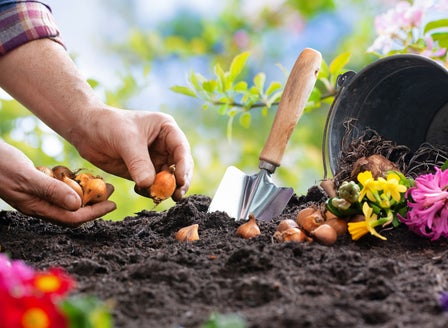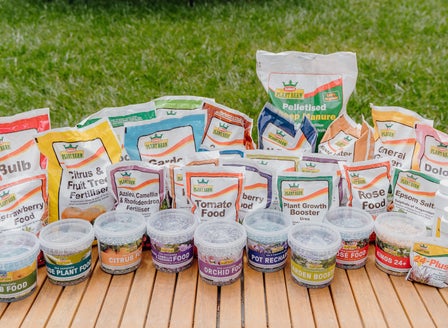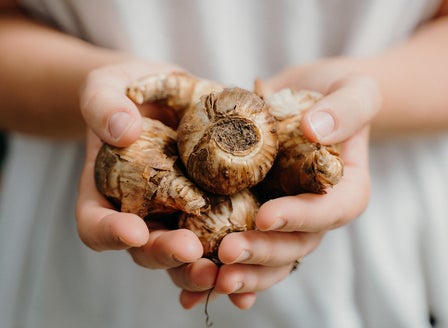Crocus are great when planted in rockeries, pots, boarders or under trees. The spice Saffron is obtained from the Stigmas of Crocus Sativus, an Autumn blooming species.
Planting Calendar
Crocus bulbs are best planted in autumn when the temperatures cool down but before winter sets in. Best months to plant crocus in New Zealand are April -May.
Prepare
Position
Whether planted in the ground or in pots, crocuses like to grow in full sun to part shade. They can be planted under trees provided they get some dappled sunlight.
Soil
When planted into the ground, Crocus like a free draining soil that is rich in organic matter. To improve the organic content in your soil, break up the soil and add Kings Compost and Kings Sheep Pellets then mix together well. When growing in containers, plant into Kings Potting mix.
Plant
If growing in pots plant 4-5cm deep with the point facing upwards, plant into Kings Potting mix, you can fit about 10-15 bulbs in one 20cm pot. Water in well with Aquaticus Organic Garden Booster. In the ground, the general rule is to plant at a depth of twice the diameter of the bulb. However in heavier soils, plant slightly closer to the surface. Fork up the soil upto 15 cm deep and add King's slow release Bulb Food. Plant the corms with the pointed part facing upwards at a depth of around 5 -8cm. water in well with Aquaticus Organic Garden Booster.
Care
Watering
Watering regularly from time to time is essential to keep the bulbs moist, but not soaked.
Feeding
Apply Kings Slow Release Bulb Food when first planting and once again after the first signs of growth.
Protecting
The most common attack on bulbs is by snails and slugs. Sprinkle appropriate snail and slug bait around the bulbs to control infestation. Quash Slug bait is recommended if you have pets.
Spraying
If sucking and chewing insects are a problem spray with Organic Aquaticus Bugtrol
General Care
When using sprays, chemicals or fertilisers always read the label and follow the instructions. Apply sprays in the evening to avoid harming beneficial insects.
Expert Tip
After flowering, allow the foliage to die back naturally. Crocus corms draw the nutrients from the leaves and store them for next season. Removing the leaves too early may result in poor quality flowering the following year. Most corms can be left in the ground for many years, and don’t need to be lifted unless they become overcrowded or if they need extra winter chilling. This allows them to naturalise and multiply.
Tip
Crocus flowers are the first bloomers in the spring season. Their dainty calyx shaped flowers open when there is enough light but close in low light or at night.
Frequently Asked Questions
What is the best time to plant crocus bulbs?
The best time to plant crocus bulbs is in autumn, from March to May.
How do I plant crocus bulbs?
If growing in pots plant 4-5cm deep with the point facing upwards, plant into Kings Potting mix, you can fit about 10-15 bulbs in one 20cm pot. Water in well with Aquaticus Organic Garden Booster. In the ground, the general rule is to plant at a depth of twice the diameter of the bulb. However in heavier soils, plant slightly closer to the surface. Fork up the soil upto 15 cm deep and add King's slow release Bulb Food. Plant the corms with the pointed part facing upwards at a depth of around 5 -8cm. water in well with Aquaticus Organic Garden Booster.
Are crocuses suitable for lawns?
Crocuses are ideal for naturalising in lawns. Plant them in groups, and avoid mowing the area until the foliage has died back in late spring.
Will crocuses multiply over time?
Crocuses naturalise and multiply over time, creating larger clumps each year.
Can I grow crocuses in pots?
Crocuses grow well in pots. Use a well-draining potting mix and ensure the container has good drainage.


